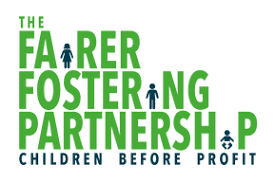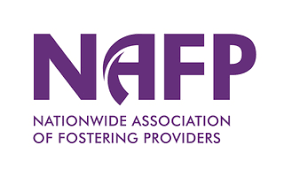Making a positive impact through Short-Term fostering

What is short-term fostering & is it right for you?

Short-term fostering typically lasts a few days or weeks, whilst a more permanent long-term plan is made. However, some short-term foster placements can last months or even years. Short-term placements are vital for children who need a safe environment away from their birth families. Children are put in short-term foster care in England for a variety of reasons, mostly surrounding inappropriate care at home.
The birth parents may be temporarily unable to look after the child, so they must be placed elsewhere on a short-term basis for their well-being.
The Children’s Family Trust (CFT) makes all necessary arrangements for temporary foster care. Reach out to our team to discuss the possibility of becoming short-term foster parents to young people needing a safe, nurturing place to live.
How long does short-term fostering usually last?
Although “short-term” may signify placements lasting for a few days or weeks, in some cases, the arrangements are required for months and possibly years. The length of the placement is entirely dependent on the child or young person, so predicting the length of short-term foster placements is impossible.
However, if you are approved for short-term fostering, you will manage the transition with the support of a dedicated social worker who will coach you through creating a safe environment for the child to navigate their new temporary circumstance. The Children’s Family Trust provides ongoing training, support, and guidance for foster carers within our organisation to make the transition smooth.
What are the expected outcomes of Short-Term fostering?
The ideal outcome after a short-term foster placement is for a child or young person to return to their birth families once the concerns about the child’s care have been addressed or birth parents are ready to welcome the child home. Alternatively, the child or young person could be fostered long-term or even adopted. During this process, it’s so important you, as a foster family, are included in the transition to help the young person understand the next steps and what is about to happen.
Children and young people flourish best in temporary foster care when they are informed about their situation and clearly understand their rights. The CFT ensures you are prepared for this, so you can help them make the best possible decisions for their future. As a short-term foster carer, you become an advocate for the child regardless of the placement length. You may be expected to liaise with various professionals, adoptive and birth families to ensure the best outcome for the child in your care. Find everything necessary to ensure a better short-term fostering experience in our resource centre. It is accessible 24 hours a day and contains up-to-date materials, advice, and support from our experts.
Make an enquiry!
Enquire About The CFT’s Short-Term Foster Care in England

If you’re interested in learning more about how short-term fostering works in England, please contact us.
Our not-for-profit fostering charity invests in enhancing the lives of foster carers and the young people under our wing. Talk to us today about our competitive financial packages, one-on-one non-biased guidance, advice and other incentives to make becoming a foster parent with our organisation worthwhile.
Exploring the different types of foster care needed
Short-term fostering is but one common type of foster care that is needed but is fostering right for you? The Children’s Family Trust makes arrangements for short-notice and long-term fostering. Short-notice fostering occurs when a baby, child, or young person requires immediate placement with a foster family without any formal introductions. Long-term fostering occurs when a child or young person remains in the care of the foster parents until they reach adulthood and can choose to live independently.
Foster care may be needed for multiple children or young people, as keeping siblings together is always a priority to The CFT. We also often need families to foster teenagers, which can be a rewarding experience for those interested in making a positive difference in a young person’s life as they approach independence. Finally, because we recognise that being a foster parent can be challenging, Shortbreak foster care provides a vital service that ensures foster carers avoid burnout through much-needed breaks. Explore the various fostering options offered to see which fits you and your family best.
Short term fostering | Latest news
Black History Month
Fostering with young children
Coping with stress in fostering
Types of foster care


















